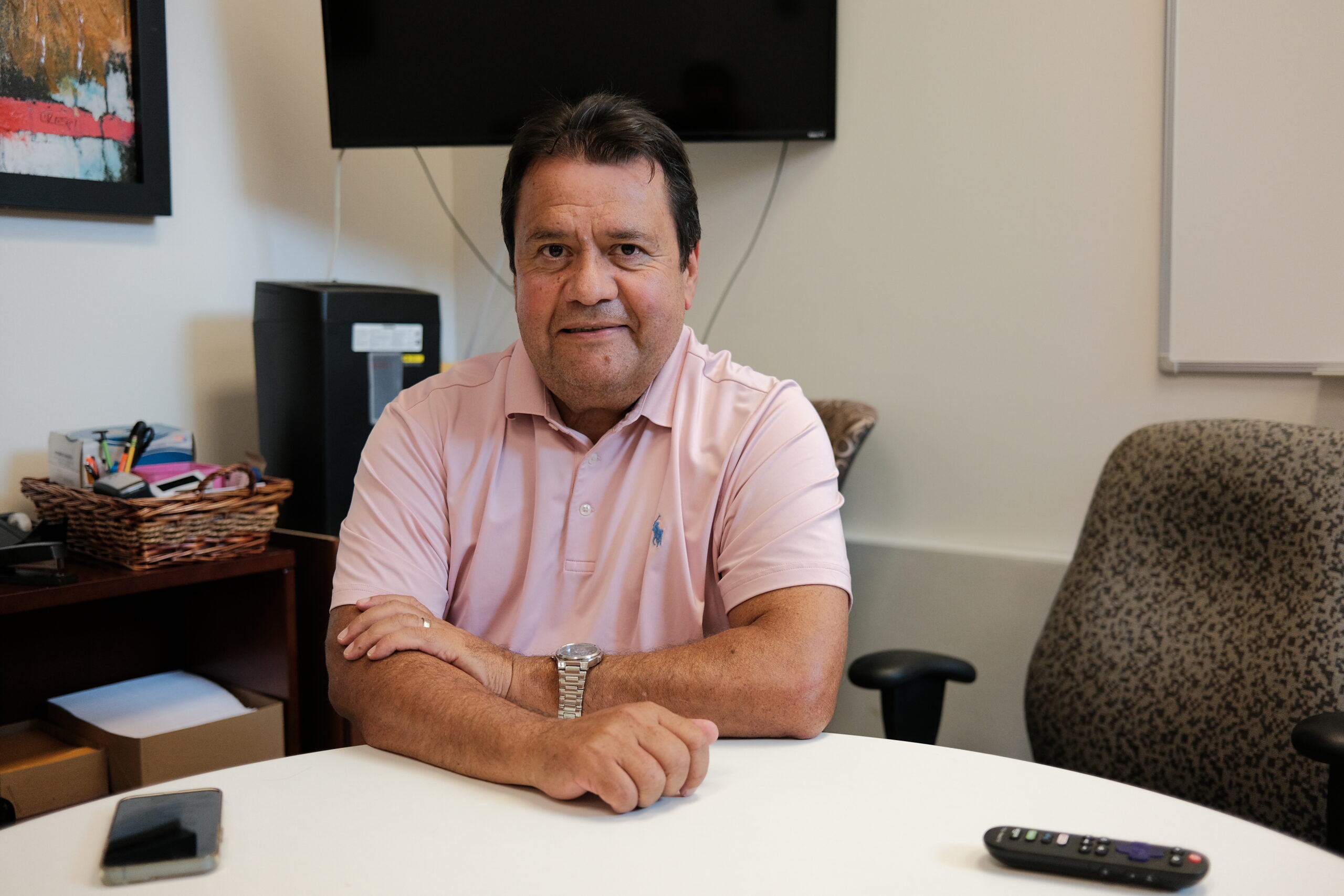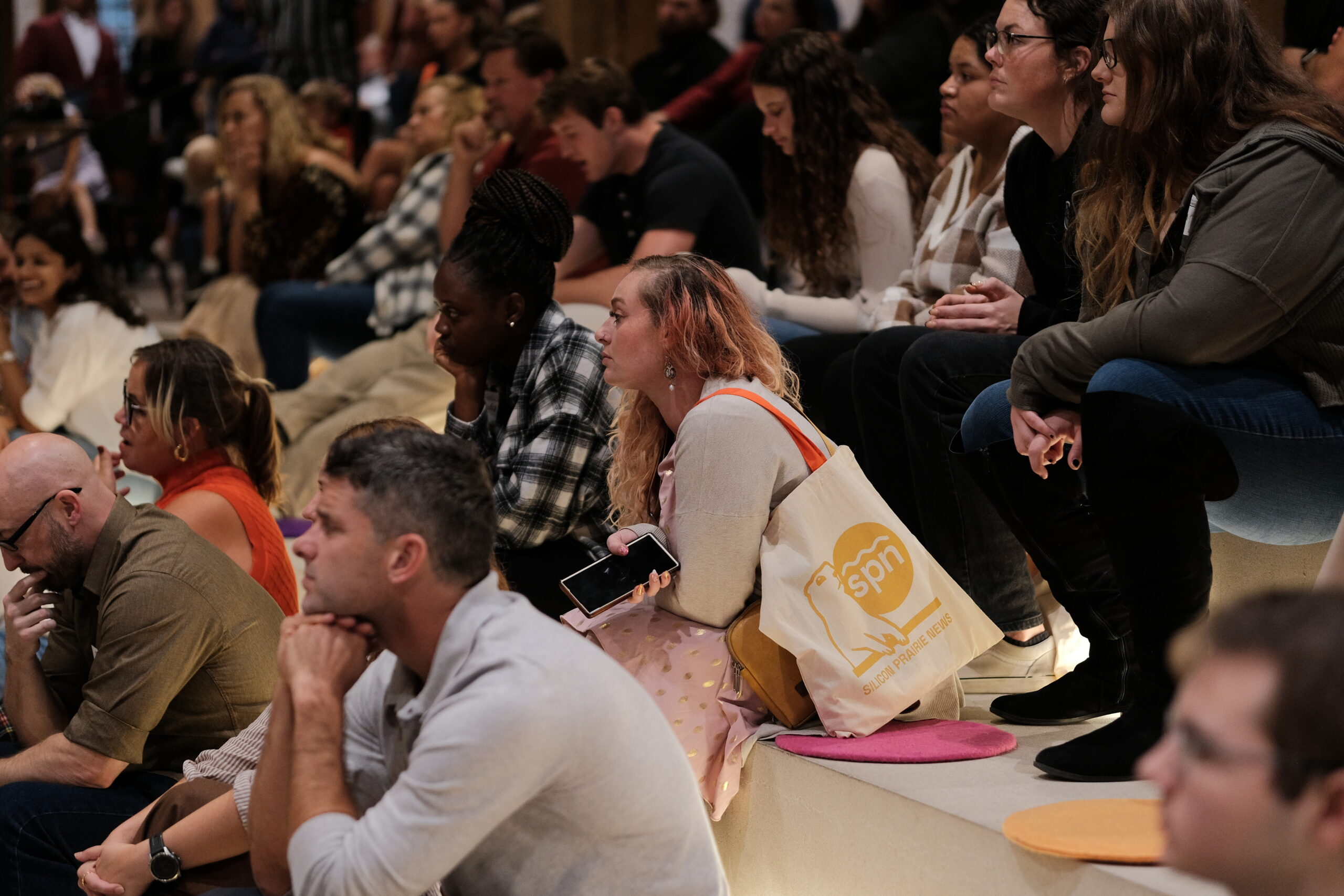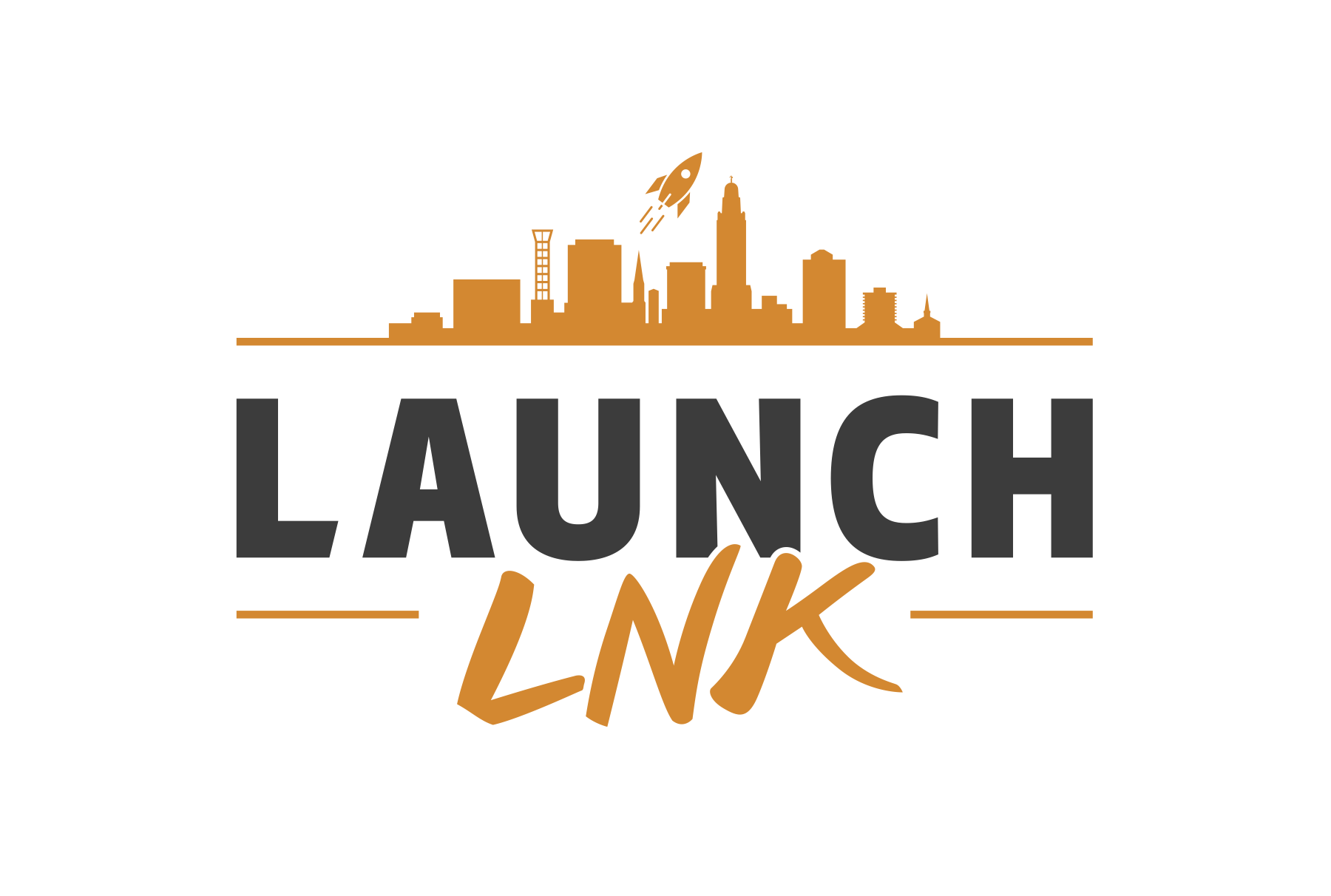For years, Nebraska’s entrepreneurial ecosystem had a strong supporter from just down the road: the Ewing Marion Kauffman Foundation in Kansas City. It funded a variety of programs, from Greater Nebraska initiatives to research on entrepreneurship, and helped early-stage organizations develop their infrastructure.
But in 2024, the foundation scaled back its regional Midwest work for a greater focus on its hometown. “We want to make sure everything we’re investing in has impact back in Kansas City,” Allison Greenwood Bajracharya, Kauffman’s chief impact and strategy officer, told The Community Voice in Kansas.
In doing so, Kauffman leaves a gap in Nebraska’s ecosystem. “I don’t know that any existing foundations in Nebraska right now have that clear a focus on entrepreneurship growth” as Kauffman does, said Josie Schafer, director of the Center for Public Affairs Research (CPAR) at the University of Nebraska at Omaha.
But that gap is an opportunity — both for local funders to step up, but also for them to take notes on how Kauffman made its impact. Rather than long-term support for programs or organizations, Kauffman seems to have focused on substantial one-time gifts with capacity-building elements. That was transformative for local recipients, while also reducing potential hurt from the regional pullback.
Getting local philanthropy more involved in entrepreneurship will be essential over the next few years, said Invest Nebraska CEO Dan Hoffman. Invest Nebraska previously leveraged a $250,000 grant from the Kauffman Foundation to support startups in Norfolk.
Foundations are “becoming more and more relevant … as right now, the federal government takes a pause from funding grants for entrepreneurship and innovation,” he said. “So I think there’s a greater emphasis on what states are going to want to do, and what private foundations are going to be able to do.”
Giving a boost
In 2020, when Katrina Adams started the POC Collaborative, a North Omaha entrepreneurship and community development nonprofit, she was the only full-time employee. As a new organization, she had some fundamental questions to answer.
“How do I build the relationships, how do I build the infrastructure? So that we can grow, so that we can serve additional folks,” Adams said.
At an early stage, there often isn’t much time or funding to figure those things out. But then, Adams joined a Kauffman Foundation SPARK Capacity Building cohort. The program, running from 2022-2024, let Adams connect with and learn from other regional nonprofits working on entrepreneurship. It also came with $50,000 to develop a strategic plan.
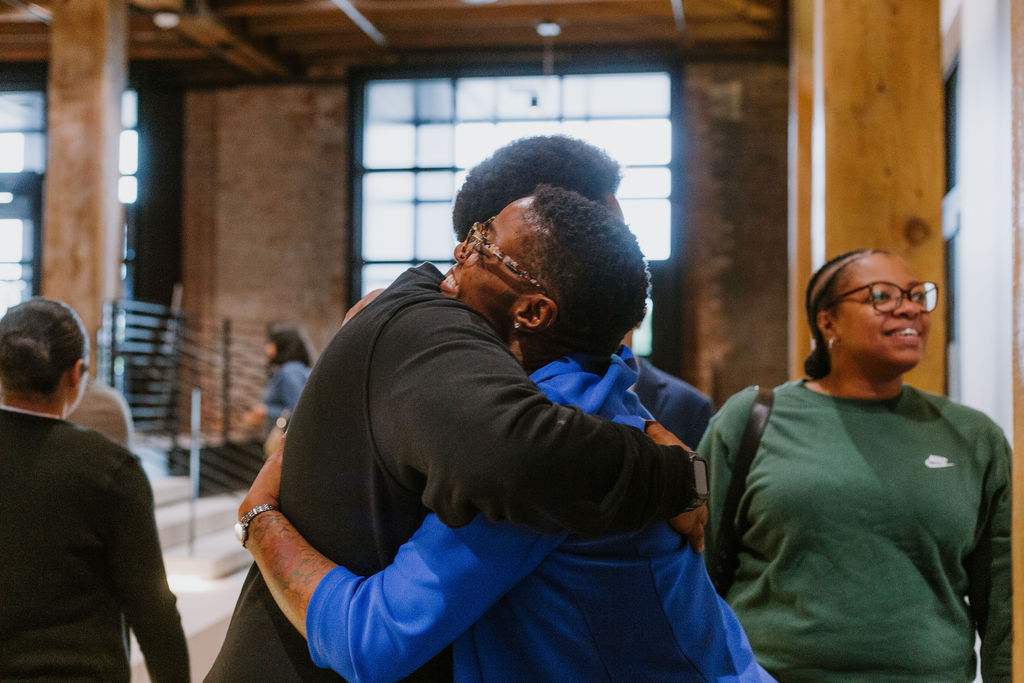
“The fact that they were able to say, ‘We want you to plan it and do it’ was really a great, substantial effort,” Adams said. “There are programs and different resources where (the capacity-building grant) could be $500 or $2,500 or varying amounts, and so to allocate a relatively healthy amount for development was deeply appreciated.”
Daniel Padilla, the executive director of Lending Link, a South Omaha nonprofit offering consumer and small business loans, had a similar experience with Kauffman. He was part of a different capacity-building program called the Heartland Challenge Learning Cohort, which also ran from 2022-2024.
The cohort came with $360,000 for Lending Link to open an office in North Omaha — which led to more interest from local foundations to support Lending Link’s work. “It was a very good head start,” Padilla said. Kauffman’s program “was so good,” he said, “that I wish I could get more of that.”
While both Adams and Padilla were disappointed that, with Kauffman’s change in priorities, they couldn’t apply for more support, they also saw the fixed investments as smart practice. Kauffman gave enough money to be impactful with a clear end point, which made it unlikely that Adams or Padilla would become over-reliant on that support.
“We did what we could and never went ahead,” Padilla said. “We knew that the funds were limited up to a point, and then said, ‘OK, we’re going to use it, and then we’ll go and look for something else.’”
For Adams, this also points to how effective Kauffman’s communication has been. “The funding wasn’t long term — the support has been,” she said. “That is part of the beauty of how they did it … no funders ever really say, ‘Oh, forever and ever and ever, we’re going to be here, doing this thing.’ But some aren’t as direct about saying, ‘Start, middle, end.’”
Hurt and adjustment
Kauffman’s support was also a boon to the Center for Public Affairs Research at UNO. CPAR received $310,000 from Kauffman over the last three years to research how access works in the local entrepreneurial world.
Entrepreneurship research funding tends to be for analyzing the psychology of entrepreneurs, rather than the ecosystem-level studies that CPAR favors. “That was one of the gifts from the Kauffman Foundation,” said Morgan Vogel, CPAR’s assistant director. “With the call (for research), it was speaking to the structures and the systemic barriers that entrepreneurs might face, and so it really was a perfect fit.”
But as Kauffman scales back its regional work, there aren’t other local foundations calling for that same kind of research. For now, that leaves CPAR without funding or a plan to continue its entrepreneurship research. “I think it’s a loss, but I don’t want to say that Kauffman could be the only ones funding that in Nebraska,” Schafer said.
Still, pivoting on funding isn’t easy. At the UNeTech Institute, the University of Nebraska-affiliated entrepreneurship organization, Kauffman’s pullback has meant pausing Opportunity Corps, a startup education program for women and people of color.
Stephanie Kidd, the communications strategist at UNeTech, started the program to diversify the group of founders with whom the institute worked with. “All of that programming was designed to empower those entrepreneurs, to educate them on how to use mentorship and collaboration as a way to become better entrepreneurs,” Kidd said.
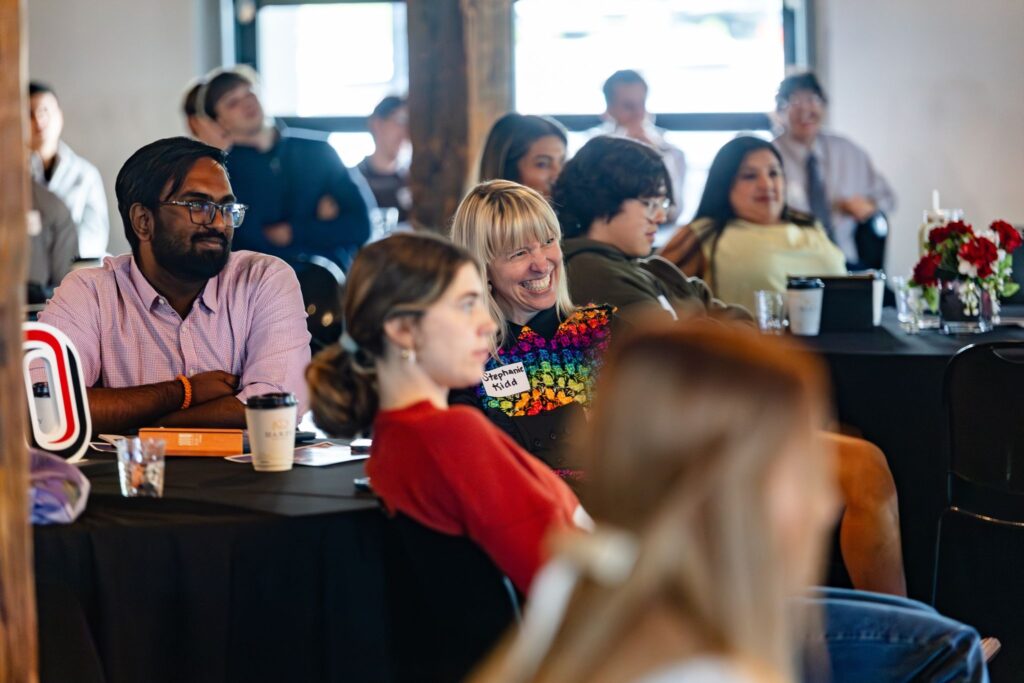
Since 2021, Kauffman had funded Opportunity Corps with two grants totalling $375,000, with that funding also supporting nearly a third of Kidd’s salary. Without new support, a beneficial program for underserved groups might not get back on its feet, and Kidd’s job could be at risk, further jeopardizing diversity efforts at UNeTech.
Finding new funding is a challenge, between federal funding cuts for diversity initiatives and increased pressure on foundations amid economic uncertainty. For the moment, Kidd is still trying to get support from Kauffman.
The foundation’s new focus doesn’t mean it won’t fund anything outside of Kansas City, just that anything it does fund has to tie in, somehow, to the city. “The foundation is not excluding organizations that are located outside the region,” said Amy Unruh, the strategic communications director at Kauffman. “We’re simply asking that those organizations demonstrate a connection or potential impact to Kansas City.
Despite the frustration of being unable to apply for a programming grant, Kidd thinks she can get Opportunity Corps back up and running with a research grant.
“If we expand the outcomes that we gather to include more than just the startup financial business outcomes — and we gather more about what happens to the women overall after they do the program — that might be more interesting to Kauffman, and we would simultaneously research the feasibility for a program like this in Kansas City,” she said.
Hoffman, at Invest Nebraska, thinks local philanthropy will be able to fill Kauffman’s place in the entrepreneurial ecosystem. That might take time, but it’s also an inherent part of the feedback loop between entrepreneurship and philanthropy. Many of the most impactful Nebraska foundations grew out of local startups, as founders made enough money and decided to give back to their communities.
That’s also how the Kauffman Foundation got its start. Ewing Marion Kauffman was a pharmaceutical salesman who started his own company, creating a financial windfall that carried over to his philanthropic work.
“To me, that’s the long game for entrepreneurship and innovation, is creating wealth for founders,” Hoffman said. “But also what we’re doing is creating future foundations from that wealth for the betterment of the community and of the state.”
Lev Gringauz is a Report for America corps member who writes about corporate innovation and workforce development for Silicon Prairie News.
